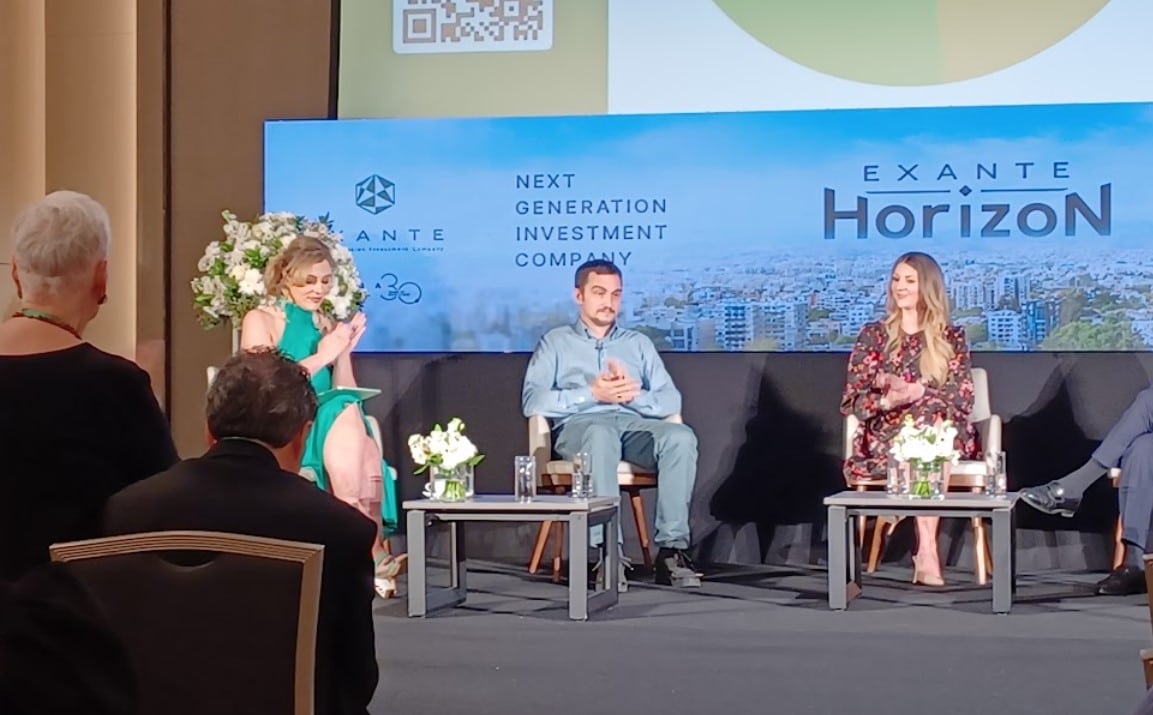Exante, a global investment company with a presence in Cyprus, this week held an event in Limassol which sought to provide insights on current economic trends and what might be on the horizon for investors, allowing them to be better informed about how their portfolios might be impacted.
As well as being licensed by the Cyprus Securities and Exchange Commission (CySEC), Exante is also licenced by the FCA (UK), and the SFC (Hong Kong), while its footprint extends across more than 20 global locations including London, Limassol, Malta, and Hong Kong.
The centrepiece of the event was a panel discussion, with leading experts brought together to discuss what’s on the horizon for equity, commodity, crypto, fixed income, currency and other markets.
The panel consisted of Arnab Das, Head of Global Strategy for the EMEA region at Invesco; Hannah Gooch-Peters, Global Equity Investment Analyst at Sanlam; Gregory Klumov, CEO at Stasis, and Cyprus-based Fiona Mullen, founder of Sapienta Economics.
Adrian Coxon, Exante’s Chief Marketing Officer, said that the company was “very proud to be here in Limassol for our second event, following our first one in London in January”.
At the opening of the panel discussion, Simona Stankovska, the company’s Global PR Manager, mentioned inflation, falling energy prices, stock market turmoil and the threat of recession, after the chaos caused by the recent collapse of SVB, as some of the biggest issues during this moment in time.

Mullen mentioned that there are three megatrends at play at the moment. These include geopolitics, which is likely to keep inflation high for a while yet, the green transition, and artificial intelligence.
In addition, the war in Ukraine is expected to keep countries focused on self-reliance, resilience and autonomy.
In this regard, Arnab Das explained that this may lead some companies to “duplicating or even triplicating supply chains, allowing them to run parallel operations, for example with one factory in Asia and another in their home market, which means that they are essentially doubling or tripling capital expenditure”.
Regarding cryptocurrencies, Mullen noted that the Cyprus Securities and Exchange Commission (CySEC) had aspirations of turning Cyprus into a crypto hub, similar to the efforts of countries like Malta, but recently, the relevant Distributed Ledger Technology (DLT) framework was withdrawn. The suspicion here is that this may be related to sanctions, with Cyprus not wanting to be seen facilitating anything that may be perceived as illicit.
In terms of the recent decision by the European Parliament to endorse the first EU rules to trace crypto-asset transfers, prevent money laundering, and implement common rules on supervision and customer protection, Klumov struck a positive note.
“Regulation will be positive for crypto,” he said, noting that the countries who moved early in this space ultimately stumbled on banking regulations and other such issues. He explained that regulation will provide clarity and will help casual investors to better understand and interact with cryptocurrencies.
“Over the last 7-8 years, there were a lot of contradictory statements by politicians and officials. Some were lobbying against crypto. An average citizen was left puzzled. Finally, there’s clarity, so now we will need to see how big the market is,” he added.
When asked whether stocks and equities are currently undervalued or overvalued, Hannah Gooch-Peters said that this is a difficult question but would lean towards saying that they are undervalued.
“Look for parts of the market that are underappreciated. European pharmaceutical companies, for example. If companies are collapsing, like banks, often there’s a fundamental reason why they are collapsing. So you need to be looking at underappreciated but growing, high-quality companies. Look ahead of the curve. See what fits the bill for your portfolio,”
She later went on to say that “the easy money has already been made”, adding that “you have to see what’s not been moving and is underappreciated”.

